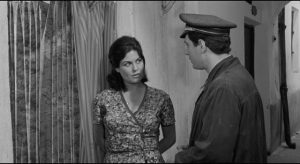This week we have discussed issues of liberalism and its taking place within the frame of the last 15 years of the Francoist fascist regime. In this paradoxical frame, we have engaged questions of humor, noir film, masculinity and femininity, gender bending and representation, voiceover, poetic voices, stream of consciousness, and that “she” remembering the future. To trace these cultural happenings, we have engaged primary evidence (Berlanga’s The Executioner, Zambrano’s essay “Remembering the Future,” and the three poems by González, Guillén, and Hernández), and secondary evidence by Pavlovic, Marsh, and Duprat de Montero.

Given our class and screening discussions, I trust that most of you have grasped the importance and meaning of these matters. Given, also, that you have to turn in your second short paper (this one on the topic of “Manipulation of Historical Memory”), I am hereby establishing a moratorium on blogposting for this week. Please, note that, as I said many of you in the first paper, this thematic axis is NOT your title for this paper. You must assign your paper a title that announces what is YOUR argument about the manipulation of historical memory in Spanish literature and cinema that we have read and discussed until now.
You do NOT have to post a blog on the above-stated matters this week. IMPORTANT NOTE: if posting on these matters can help you contribute to your second short paper, please do not hesitate to do so, and I will give you feedback on that posting.




